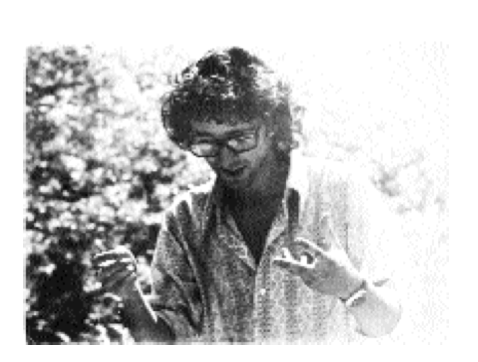I begin with a personal recollection, because it’s the only way to start, I think, when you’re going to talk—or write—about a writer you were lucky enough to know, and about books whose company you’re still lucky enough to enjoy.
It’s the end of fall or the beginning of winter in Barcelona 2001. And it’s cold and there are clouds and there’ll be rain. And before getting on the commuter train back to Blanes, the Chilean writer Roberto Bolaño, for the first time in his life (or at least that’s what he swears), steps into one of Barcelona’s many Kentucky Fried Chicken outlets.
We’ve already visited the inevitable bookstore La Central (almost certainly the greatest bookstore in the world), where Bolaño picked up various books that he plans to use for research for his novel 2666. The walk is part of a routine established in 1999, when I first met Bolaño and we became friends: books and a walk and something to eat. So this time it’ll be Kentucky Fried Chicken.
I go in with Bolaño (it was my idea to get something to eat here, I confess), and we order our respective meals. Bolaño sits down at a table from which he can see the whole room, lit by harsh neon lights, and surveys his surroundings in fascination. “Have you noticed? Everybody’s here…” He smiles almost in ecstasy, and everyone—I turn around to see—is a throng of South American immigrants, legal or illegal. They’re recognizable by their foreign features, but also by the discipline with which they count out the exact change when they pay, the almost reverential silence of their chewing, and the great care they take not to spill on their sweaters patterned with ethnic motifs. There are also—it’s true—Asians, sub-Saharan Africans, and the occasional American college student, nostalgically seeking a taste of home. But the Latin American component is clearly in the majority; and Bolaño can’t stop staring at all of them as if they’re potential masterpieces. The—love?—in Bolaño’s gaze is none other than the love a father feels for his children, or the horrorized pride of the sanest of mad scientists gloating over a laboratory crammed with potential experiments. Bolaño eats, still smiling: with the gleeful sadness of someone who remembers terrible moments from his own past, looking everywhere and nowhere; a little bit maudit and completely Bolaño when he says that the South American writers living in Barcelona—“right away, now’s the time”—should make this Kentucky Fried Chicken their gathering place, the spot where they meet to talk and debate.
And, of course, what Bolaño is doing is laughing at the idea of writers—writers of any nationality or galaxy—getting...
You have reached your article limit
Sign up for a digital subscription and continue reading all new issues, plus our entire archives, for just $1.50/month.
Already a subscriber? Sign in





